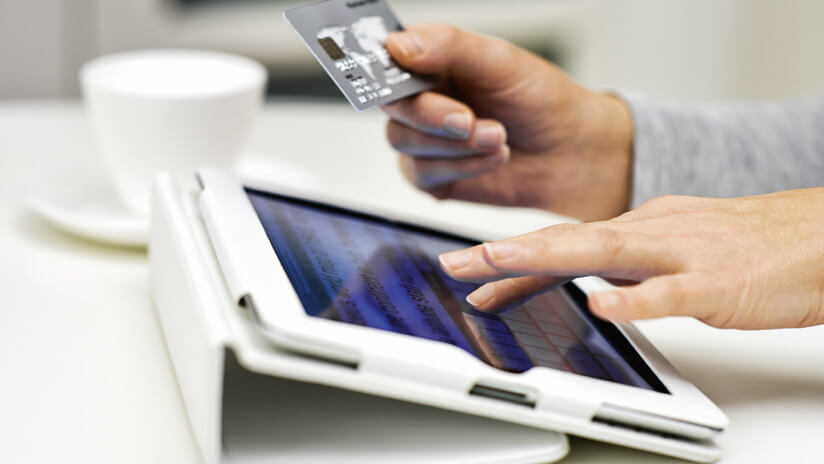3 ways to help stop security breaches

Why is cyber security so important?
Today, businesses in all industries use mobile devices and digital tools daily. And while technology solutions can help to make life easier, they can also be hacked if they’re not well-protected by cyber security measures.
Indeed, cyber attacks have quickly become one of the fastest rising forms of modern crime. The good news is, there are steps every business can take to help protect their systems from cyber criminals, commonly referred to as hackers.
What is a cyber security strategy?
According to the Australian Cyber Security Centre (ACSC), most businesses use the internet at some point to buy, sell, or communicate about their services or functions. For this reason, it’s important to make sure you’re working online as safely as possible.
That’s where a cyber security strategy comes into play. Basically, the term refers to a high-level plan that outlines how your business will secure its assets to help minimise the risk of a cyber attack.
What kinds of devices and tools need protecting?
You probably hear a lot about the importance of protecting your business online, but what does that mean? Simply put, a holistic cyber security strategy should consider:
- Mobile device security
- Endpoint protection
- Email and application security
Now we’ve listed three ways to help protect your business, let’s take a closer look at what each strategy entails.
Mobile device security
As defined by Check Point Software, a leading provider of cyber security solutions, mobile device security is a term used to describe a combination of strategies and tools that secure mobile devices against security threats.
The level of mobile device security your business needs will depend on what you use your mobile devices for. As a general rule of thumb, mobile security should always entail the following key elements: application and file protection, network protection and device protection.
Solutions such as Check Point Harmony Mobile help to protect your data by delivering easy-to-manage security for mobile workforces, large or small.
Endpoint protection
As the term implies, endpoint protection is a solution that helps you to monitor and protect your endpoints against cyber threats. Endpoints that may benefit from endpoint protection include:
- desktops
- laptops
- smartphones
- tablet computers,
- other business devices.
In a world where employees working from home and off-site is a reality for many business owners, endpoint security plays a critical role in enabling your remote workforce.
If you want to empower your workforce with endpoint protection, Check Point Harmony Endpoint offers a comprehensive security solution to help protect your devices and servers from breaches and data compromise.
Email and application security
Email security solutions are designed to help protect against phishing attacks and other email-borne attack vectors. In other words, email security helps to protect your business email accounts from external threats.
With an email security solution that helps to protect other cloud-based applications, you can also defend the business applications your teams use to collaborate, such as: Microsoft Teams, Office365, and Slack. However, not all email and application security measures will provide the same level of protection. So, it’s always best to check the specifics of each solution before you make your investment.
If you want to help protect your email accounts in addition to collaboration tools, solutions such as Check Point Harmony Email & Collaboration help secure your lines of business communication in-house and while working remotely. Designed to help prevent malicious emails from reaching your inbox, this solution allows you to better safeguard business-critical information stored and shared between your staff and customers.
What to look for in cyber security solutions
Not all cyber security solutions are created equal, but there are a few things you should look for when investing in cyber security products or services.
Things to consider when comparing cyber security products
- Look for solutions that help equip your tools with comprehensive threat detection. Quality cyber security software should help to detect, block, and respond to malicious apps, unsecured networks, and operating system exploits.
- Where possible, invest in cyber security products that help cover all bases, from your endpoints to the cloud, to your mobile workers’ personal devices.
- Seek out solutions that integrate multiple security measures. To help you defend your network from one dashboard, not from several different places.
- Scale as you need with solutions that offer flexible subscription models. If you can pay for products monthly on a per user or per device basis, it helps you adjust your cyber security measures as your business evolves.
At the end of the day, your cyber security strategy should be most informed by your business needs. So, always take the time to consider where it makes most sense to invest. For some businesses, that could mean starting with mobile security, while others may opt for email security, as step number one.
Keen to continue your cyber security education? Learn how to get the basics of cyber security right.
Help fight security breaches
By signing up for Cyber Wardens, a program from the Council of Small Business Organisations of Australia (COSBOA) that aims to educate businesses like yours on how to help fight online threats.
Your one-stop shop for software solutions
Help boost your productivity with software that connects you with the solutions you need to stay competitive in the ever-changing world of business.




